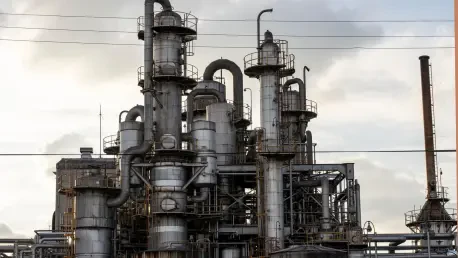The GAIL-OIL Gas Sale and Purchase Agreement (GSPA) for 2025 signifies a strategic collaboration aimed at bolstering India’s domestic energy landscape. As energy demand rises, the importance of sustainable and diversified energy sources becomes increasingly apparent. This agreement underscores both companies’ commitment to enhancing India’s natural gas supply, presenting key opportunities and challenges within the sector.
Driving India’s Energy Sector Forward
The alliance between GAIL and OIL is a landmark endeavor in India’s quest for energy independence. Historical context reveals that India’s energy sector has been undergoing transformative changes, with natural gas playing a pivotal role in this evolution. The partnership seeks to enhance domestic natural gas production, ensuring energy security and reliability amid rising energy consumption. By focusing on collaboration and innovation, GAIL and OIL aim to address contemporary energy challenges and fulfill the growing demands of diverse industries across the nation.
Market Trends and Strategic Insights
Boosting Domestic Natural Gas Supply
With GAIL set to acquire up to 900,000 SCMD of natural gas from OIL’s fields, this agreement promises to enhance the domestic supply chain significantly. Supplying key utilities like Rajasthan Rajya Vidyut Utpadan Nigam Limited, the deal is a strategic move toward reliability and sustainability in energy provisions. This increased supply is expected to stabilize and even stimulate growth in the energy sector, addressing both current needs and future expansion goals, with implications for both producers and consumers across the market.
Embracing Energy Diversity
The GAIL-OIL partnership is also crucial in advancing India’s energy diversification. GAIL’s diversification into renewable energy sources, including solar, wind, and biofuels, showcases a commitment to more sustainable practices. This strategy coincides with national objectives to balance traditional fossil fuels with emerging green energy alternatives, creating a diverse portfolio that reflects a forward-thinking approach in a rapidly evolving energy landscape.
Regional Distribution and Technological Advancements
The extensive pipeline network operated by GAIL, which covers more than 16,421 km, indicates opportunities for regional energy distribution. Technological advancements, such as smart grid technologies, highlight the industry’s ongoing commitment to modern infrastructure, which can reduce energy transmission losses and optimize operations. This comprehensive approach—integrating distribution strategy and technology—demonstrates the depth and complexity required to effectively manage India’s energy needs.
Strategic Outlook and Recommendations
Reflecting on the potential transformation of India’s energy sector, the GAIL-OIL partnership seems poised to catalyze memorable advancements. As the natural gas industry adapts to technological innovations and shifts in policy, the potential for increased efficiency and reduced environmental impact offers promising possibilities. Companies are encouraged to explore innovative strategies that align with evolving market dynamics and capitalize on economic incentives geared toward cleaner energy solutions.
The power of strategic alliances like the one between GAIL and OIL lies in their ability to address growing energy demands by enhancing domestic supply capacity. As this agreement fulfills critical energy security needs, businesses and policymakers are advised to embrace long-term planning that incorporates infrastructure improvements and investment in technologies to secure sustainable growth. The implications of this partnership extend beyond immediate energy supply benefits, suggesting ways to strategically approach the future of India’s energy landscape.









